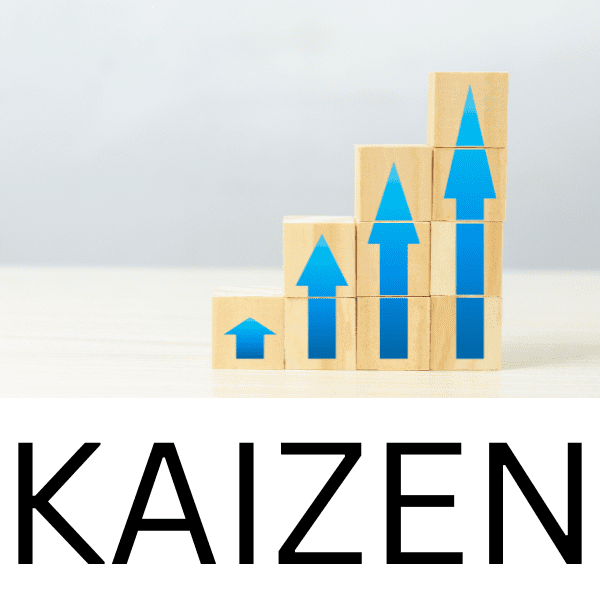Contents
Toggle
While technical skills are important for getting your foot in the door, true leadership requires a deeper understanding that goes beyond tasks and procedures. This is where emotional intelligence (EQ or EI) becomes crucial.
Emotionally intelligent leaders possess a keen awareness of their own emotions (self-awareness) and how they impact others.
They can manage their own impulses and reactions (self-regulation), and use this control to motivate and inspire their team. Understanding the emotions of their team members (empathy) allows them to connect on a deeper level, fostering trust and loyalty.
Strong social skills and communication skills are essential for building positive relationships and navigating complex situations. Emotionally intelligent leaders excel at conflict resolution by facilitating open communication and finding solutions that work for everyone.
By effectively managing their team’s emotional landscape, they can cultivate a collaborative and productive work environment, propelling the team toward achieving shared goals. Let’s take a closer look.
What is Emotional Intelligence?
Emotional intelligence is a critical competency that sets strong leaders apart. It’s the ability to understand and manage your own emotions, as well as recognize and influence the emotions of others. This skillset is crucial for effective leadership, influencing a staggering 58% of job performance according to a study. Let’s break down the key components of EI that contribute to exceptional leadership:
Self-awareness:
A strong leader possesses a deep understanding of their own strengths, weaknesses, triggers, and emotions. This self-awareness allows them to make sound decisions and avoid being ruled by their impulses.
Self-regulation:
Leaders with high EI can manage their emotions effectively. They can stay calm under pressure, avoid emotional outbursts, and adapt their approach to different situations.
Motivation:
Emotionally intelligent leaders are intrinsically motivated and passionate about their goals. They can also inspire and motivate those around them, fostering a positive and productive work environment.
Empathy:
Great leaders understand and share the feelings of others. They can see things from different perspectives, fostering trust and building strong relationships within their teams.
Social and Communication Skills:
Emotionally intelligent leaders excel at interpersonal communication. They actively listen, express themselves clearly, and can navigate complex social situations with ease.
Conflict Resolution:
Leaders with high EI can effectively manage conflict within their teams. They can identify the root cause of disagreements, facilitate open communication, and find solutions that work for everyone involved.
Through these core elements of EI, leaders can build strong teams, navigate challenges, and achieve remarkable results.
Why is Emotional Intelligence Important?
Leaders with high EQ are better at:
- Managing stress and staying calm under pressure.
- Resolving conflict effectively.
- Communicating with empathy and understanding different perspectives.
- Building strong relationships and fostering a positive team environment.
In the workplace, leadership goes beyond just giving orders and making decisions. Emotional intelligence is a critical factor that separates good leaders from exceptional ones. It’s a set of soft skills, or interpersonal skills, that directly impact a leader’s effectiveness.
Emotional intelligence skills encompass several key areas. Self-awareness is the foundation, allowing leaders to understand their own strengths, weaknesses, and emotional triggers. With self-management, they can regulate their emotions and avoid impulsive decisions. Motivation, both intrinsic and the ability to inspire it in others, is key to achieving goals. Empathy is crucial for leaders to see things from their team members’ perspectives, fostering trust and connection. Strong social and communication skills allow them to clearly articulate ideas, actively listen, and build rapport. Finally, effective conflict resolution is essential for navigating disagreements and finding solutions that benefit everyone.
Leaders with high EQ excel in these areas. They can manage stress and stay calm under pressure, ensuring clear decision-making in difficult situations. They are adept at resolving conflict by acknowledging different viewpoints and finding common ground. Their communication skills, infused with empathy and understanding, allow them to bridge divides. Ultimately, high EQ leaders excel at team management by building strong relationships and fostering a positive and productive work environment. By prioritizing and developing their emotional intelligence, leaders can create a more positive and successful work environment for everyone.
How to Identify a Lack of Emotional Intelligence
Leaders who lack EQ often struggle with:
- Difficulty managing their emotions and expressing them appropriately.
- Inability to recognize or understand the emotions of others.
- Strained relationships with colleagues.
- A tendency to blame others or have emotional outbursts.
Emotional intelligence (EQ) is a crucial aspect of effective leadership, often outweighing technical skills in importance. It’s essentially a leader’s capacity to understand and manage their own emotions, along with the emotions of others. Unlike a traditional IQ test, EQ measures a leader’s “soft skills” – their ability to build strong relationships, foster employee engagement, and navigate complex social dynamics.
A leader with a high EQ excels at empathy, actively listening to their team members and understanding their perspectives. This fosters psychological safety, where employees feel comfortable sharing ideas and concerns without fear of judgment. Effective communication is another key aspect of EQ. Emotionally intelligent leaders can clearly articulate their vision, motivate their team, and navigate conflict resolution with a calm and collected approach. They understand the importance of diversity and inclusion, appreciating the unique strengths that each team member brings to the table.
Conversely, leaders who lack EQ often struggle in these areas. They may have difficulty managing their own emotions, leading to outbursts or inappropriate expressions. They might struggle to recognize or understand the emotions of others, hindering their ability to build strong relationships. Strained relationships with colleagues and a tendency to blame others are common pitfalls for leaders with low EQ. By developing their emotional intelligence, leaders can create a more positive and productive work environment for everyone.
How to Strengthen Your Emotional Intelligence
There are several ways to develop your EQ:
- Practice self-reflection: Journal about your emotions and how they impact your behavior.
- Seek feedback: Get a 360-degree assessment to identify your strengths and weaknesses.
- Practice active listening: Pay attention to what others are saying and show that you’re engaged.
- Take online courses or training: Numerous resources are available to help you develop your EQ skills.
Effective leadership goes beyond just technical skills and expertise. While those are important qualities, it’s emotional intelligence (EQ) that propels someone into the realm of truly impactful leadership. An emotionally intelligent leader is self-aware, understanding their strengths, weaknesses, and how their emotions influence their behavior. They are also accountable for their actions and decisions, fostering a culture of trust within their team. This trust is built through strong communication skills, allowing them to clearly articulate goals and effectively listen to their team’s ideas.
EQ is crucial for creating a positive work culture that encourages innovation and creativity. Leaders with high EQ can regulate their emotions, remaining calm under pressure and fostering a safe space for team members to take risks and experiment. This emotional intelligence also allows them to make sound decisions, considering not just the task at hand but the impact on the team and the organization as a whole. Through strong relationship management and empathy, they excel at team building, recognizing individual strengths and fostering collaboration.
By practicing self-reflection – journaling about their emotions and how they impact behavior – and seeking feedback through methods like 360-degree assessments, emotionally intelligent leaders can continuously develop their EQ. Investing in online courses and training further equips them to navigate the complexities of human interaction, making them not just effective leaders but inspiring ones.
Conclusion:
Mastering emotional intelligence (EQ) is the key to unlocking your true potential as a leader. By honing your self-awareness, self-regulation, and motivation, you’ll gain the ability to understand and influence not only yourself but also those around you.
Empathy, social skills, and communication skills will become the cornerstones of your interactions, fostering trust and collaboration within your team. You’ll navigate conflict resolution with a cool head and a keen eye for solutions, ensuring a positive work environment built on psychological safety. Remember, emotional intelligence is a spectrum, and there’s always room for growth.
By embracing your soft skills, or interpersonal skills, you can become an expert in team management and cultivate a diverse and inclusive environment where everyone thrives. Invest in your EQ – it’s the ultimate investment in your leadership journey.
Matt Styles
Matt Styles is the founder and voice of The Stylish Leader enterprise. Empowering the next generation of leaders, Matt is focused on challenging minds, inspiring hearts, and helping others achieve their highest potential for success.

- By: Matt Styles
- Date: July 18, 2024
Kaizen: How To Supercharge Your Success
- 3 min read

- By: Matt Styles
- Date: July 15, 2024
Lean Culture 101: How To Organize A Framework That Thrives
- 7 min read

